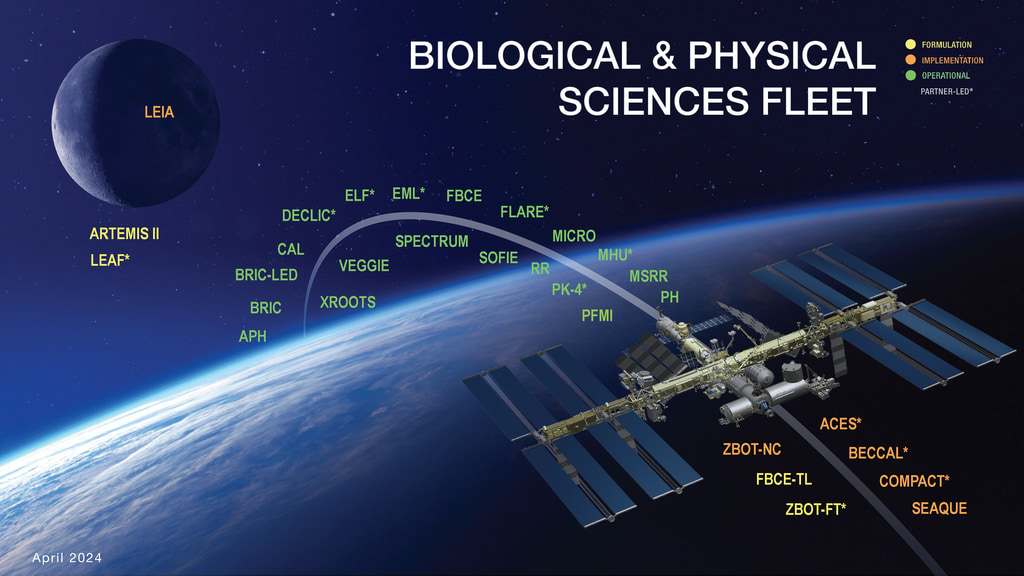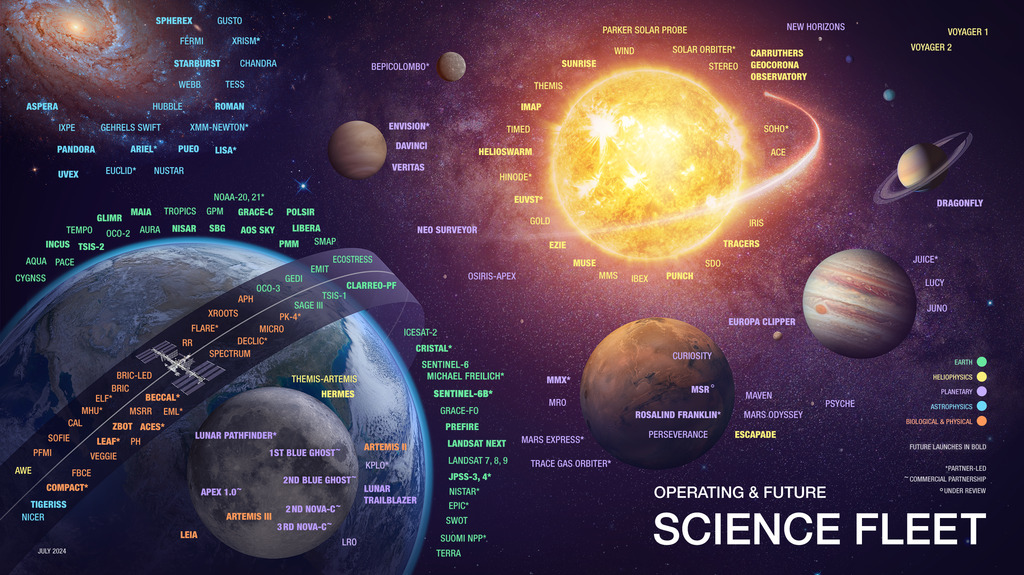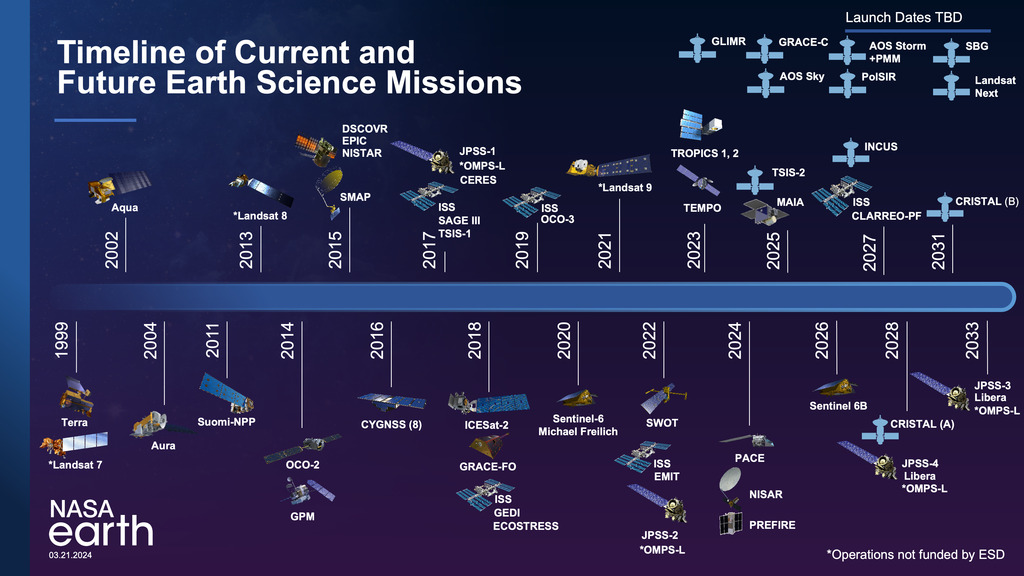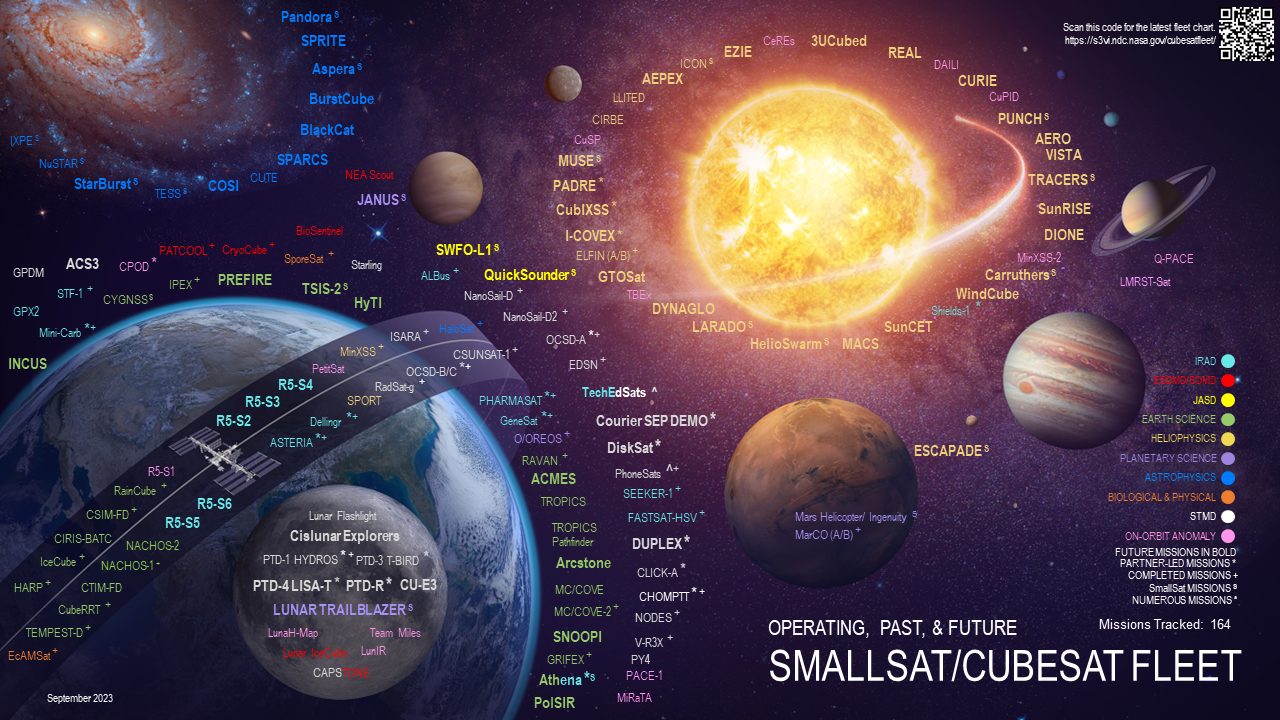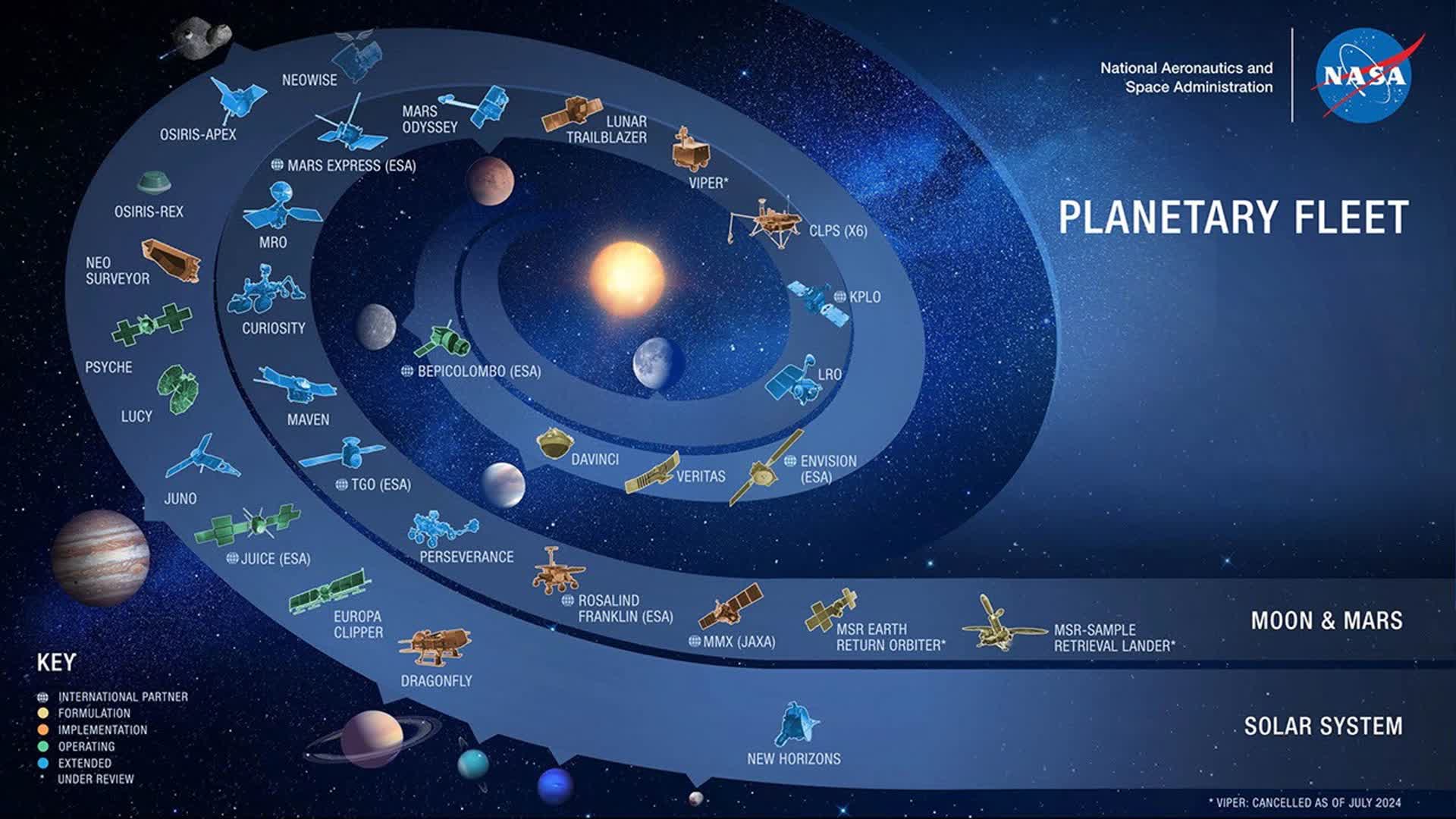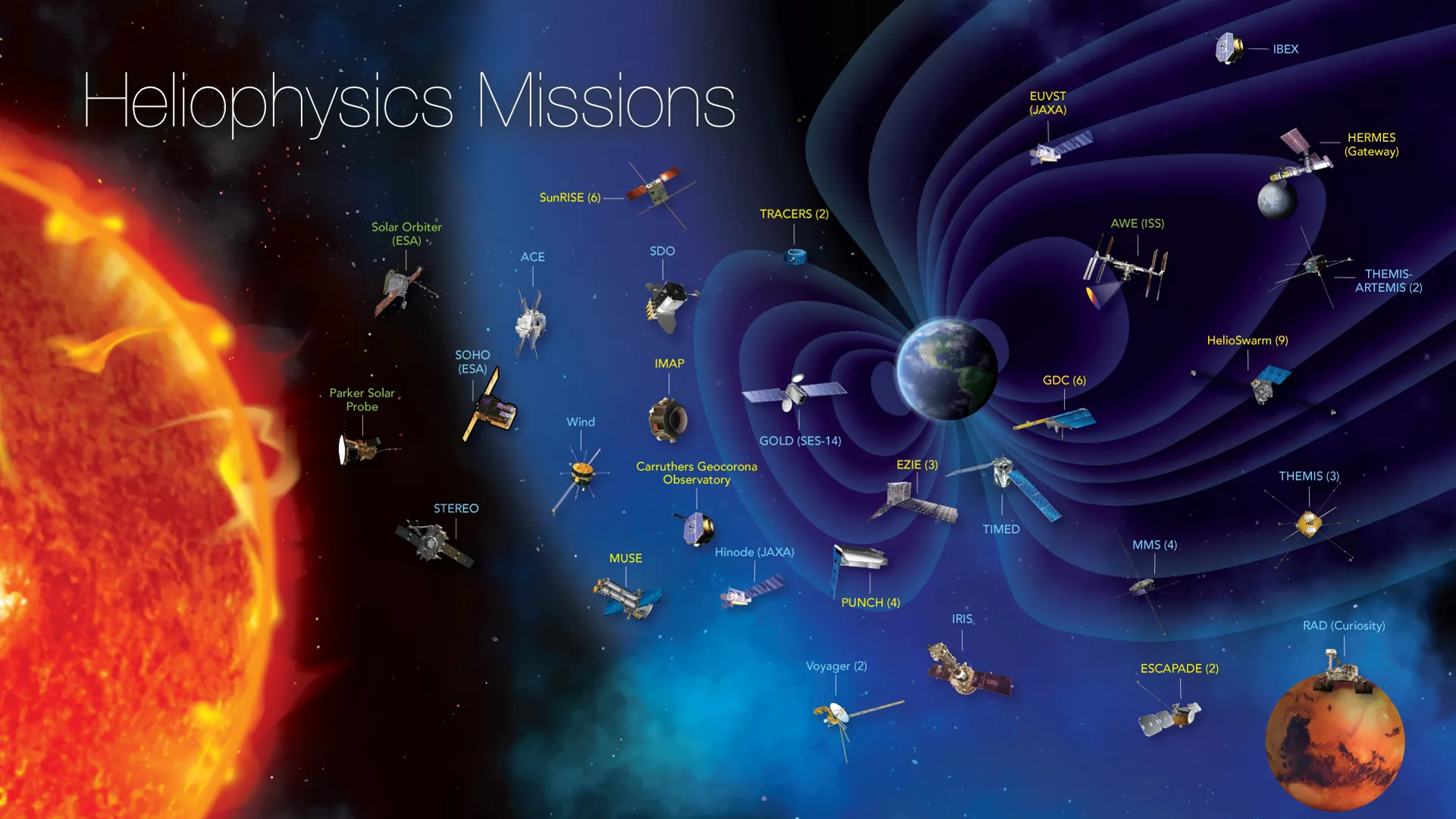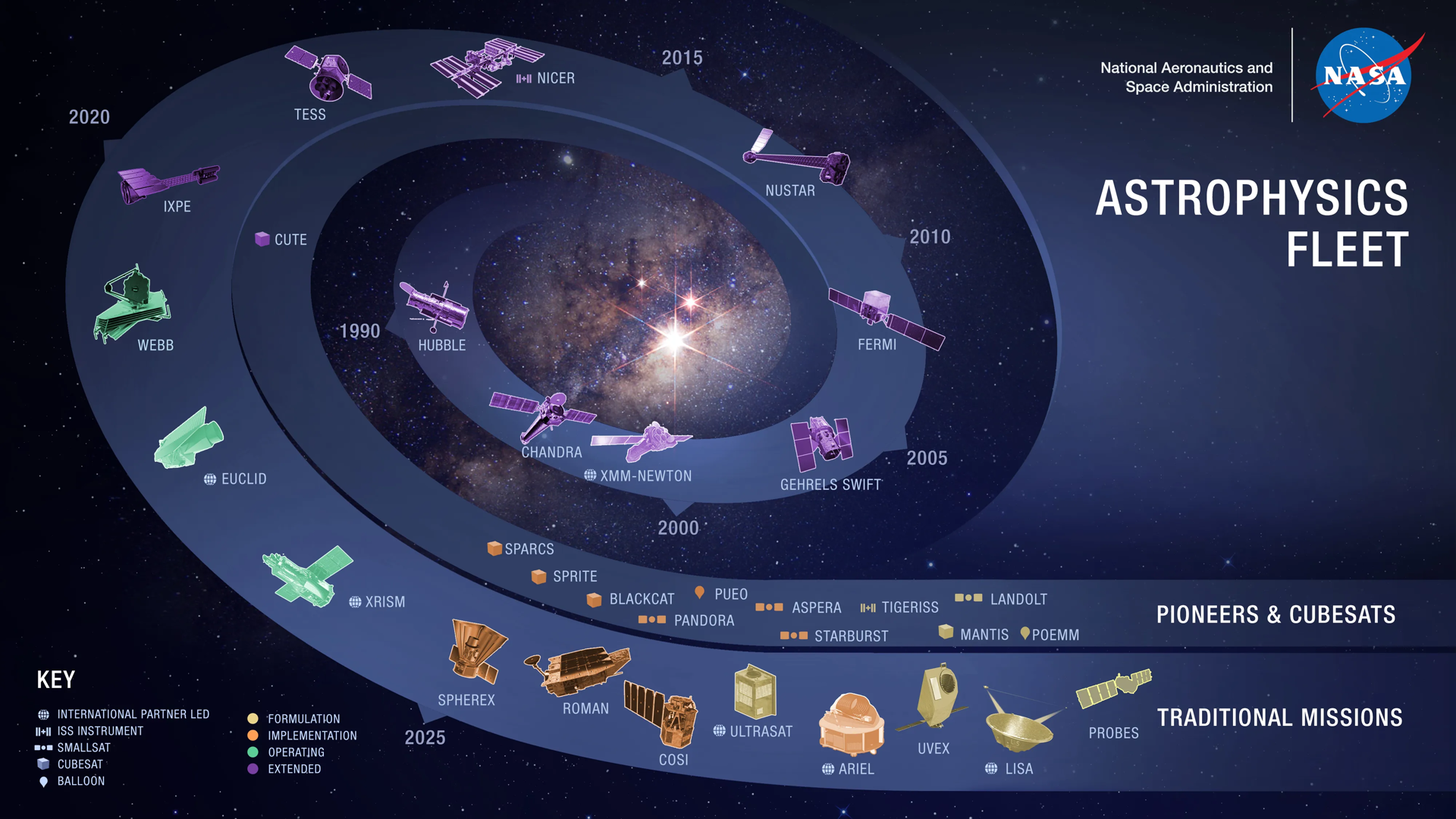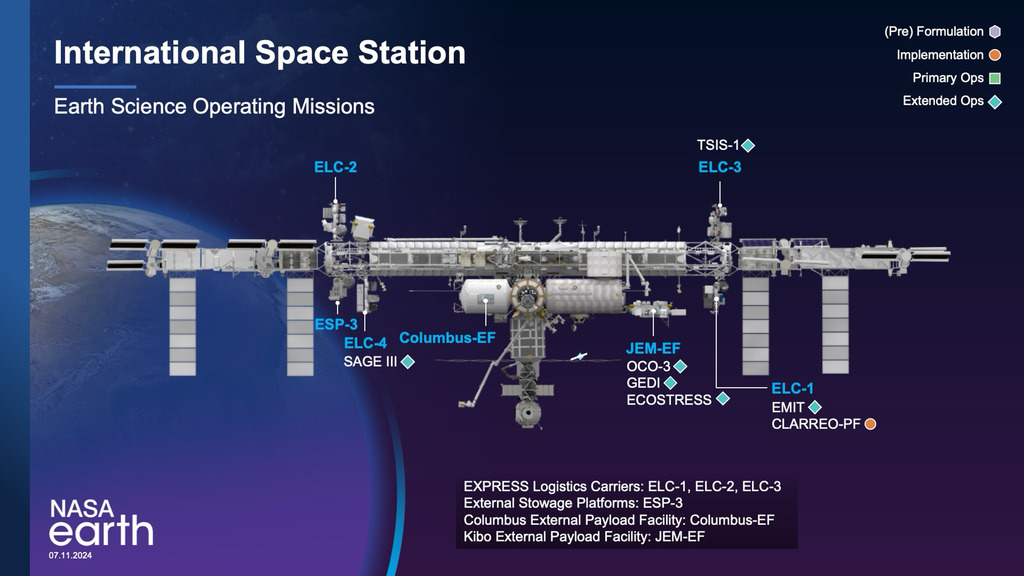NASA's Biological & Physical Sciences Fleet

Current BPS Fleet
NASA’s Division of Biological and Physical Sciences (BPS) uses the spaceflight environment to study phenomena in ways that cannot be done on Earth. BPS research is focused on two priorities: quantum science and space biology investigations that enable us to Thrive In DEep Space (TIDES).
The vision for BPS, in keeping with the NASA Strategic Plan and Decadal Survey, is: We lead the space life and physical sciences research community to enable space exploration and benefit life on Earth.
BPS administers NASA’s:
- Space Biology Program, which solicits and conducts research to use the space environment to advance our knowledge of how gravity affects the design and function of living organisms, and to understand how biological systems accommodate to spaceflight environments.
- Physical Sciences Program, which solicits and conducts research using the space environment as a tool to provide transformational insights in physics and engineering science, and to understand how physical systems respond to spaceflight environments, particularly weightlessness and the partial gravity of planetary bodies.
BPS research and technology development is conducted on a wide range of experimental platforms including ground-based analogs for spaceflight, drop towers and aircraft that provide seconds of weightlessness, to free-flyer satellites. The International Space Station (ISS) is a critically important United States facility that provides researchers the ability to conduct long-duration experiments in low Earth orbit. ISS allows continuous and interactive research similar to Earth-based laboratories, enabling scientists to pursue innovations and discoveries not currently achievable by other means. BPS is also planning research and technology development to enable human spaceflight and scientific discovery beyond low Earth orbit.
For More Information
Credits
Please give credit for this item to:
NASA's Goddard Space Flight Center
-
Technical support
- Amy Moran (Global Science and Technology, Inc.)
Release date
This page was originally published on Friday, September 23, 2022.
This page was last updated on Thursday, March 20, 2025 at 3:11 PM EDT.
